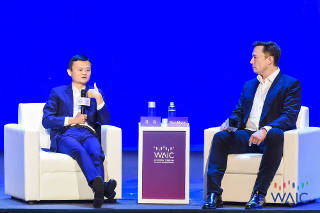[Image by Steve Buissinne from Pixabay]
We often don’t know what we want. We look around in our social circles, and simply crave what others desire—gadgets, cars, books, movies, social causes. Marketers know this, and use it to sell us more goods. It’s increasingly getting embedded in the algorithms of Amazon, Netflix, Spotify, YouTube and other big tech firms. “We will use the actions of others to decide on proper behaviour for ourselves, especially when we view those others as similar to ourselves,” writes Robert Cialdini, who spent a lifetime studying how people get influenced. Perhaps that behaviour persists because it has helped us survive in this tough and complex world.
But, imitating others’ desires can also cause problems. Rene Girard, who drew deep insights on the human condition by studying literature, says our tendency to imitate others’ desires leads to violence. (Think of a common movie theme: two men in love with the same woman.) Imitating others’ can also land us in trouble when the contexts are very different. It’s like driving a Ferrari on Bengaluru roads. A Ferrari might have made perfect sense in the owner’s social group, but it becomes an object of mockery when it struggles to inch forward around potholes in Bengaluru traffic.
It holds true of regulations too. During a visit to Mumbai, Alex Tabarrok, a professor of economics at George Mason University, saw a sign urging people to “Avoid Using Plastic Carry Bags” when barely a block away cows and people were sleeping on the street. This led him to write a paper (with Shruti Rajagopalan) called Premature Imitation and India’s Flailing State.
He writes, “We argue that one reason that India passes laws which are incongruous with its state of development is that Indian elites often take their cues about what is normal, good and desirable from Western elites. There’s nothing wrong with imitation, of course. We hope that good policies will be imitated but imitation in India is often premature. Premature because India does not have the state capacity to enforce the edicts of a developed country.”
If you look at the problem broadly as a misalignment between a solution to a problem and realities on the ground, it’s a theme that we have been covering constantly at Founding Fuel. For example, last week, my colleague CS Swaminathan stressed on the importance of “keeping the user at the centre, and also getting a good cultural understanding of the actual place where their products would be put to use.”
What’s true for product innovators is equally true for policy innovators. They have to keep one eye focused on the future, and the other on the present. One eye on the telescope, and another on the microscope.
How does one do that without getting a headache? What are your thoughts? Share with us.
NS Ramnath
Featured Stories
Creating Ethical Leaders: Will management education rethink its role?

Two factors are causing a rethink on value systems: environmental degradation and shifts in political power that reflect the voice of the disenfranchised. This new thinking will have to come from new coalitions of social thinkers, practitioners, academics, politicians and corporates. (By Ajit Rangnekar. Read Time: 3 minutes)
Note: This is the third public conversation in the Masterclass on TransformingSystems with Arun Maira. Access all the conversations through this link.
Related, From Our Archives:
- The ROI on goodness: It makes more economic sense for business to be good in the longer run. (By Charles Assisi)
- The B-school campus placement BS—and how to clean it up: Campus placement in India’s business schools have hopelessly derailed. And it’ll take considerable effort and a bunch of new ideas to get them back on track. (By Indrajit Gupta)
The new China is more than just about growth

[Photo from WAIC]
Today, the country’s focus is on exploiting the benefits of economic modernisation to redefine the goals of society in three critical areas: environmental regulation, technological innovation, and corporate social responsibility. Insights from a week-long immersion. (By G Venkat Raman. Read Time: 6 minutes)
Related, From our Archives:
- The dragon mellows: Reflections on a changing China. (By Rishikesha T Krishnan)
- The Uber-Didi deal is more about China than about Uber and Didi: China has shown the world how to carve out a near monopoly in urban transportation that’s also highly regulated and hugely competitive. (By Haresh Chawla)
What We Are Reading And Watching
Why some people become lifelong readers
A lot rides on how parents present the activity to their kids. (By Joe Pinsker)
Inside Bill's Brain: Decoding Bill Gates
Take a trip inside the mind of Bill Gates as the billionaire opens up about those who influenced him and the audacious goals he's still pursuing. (On Netflix)

